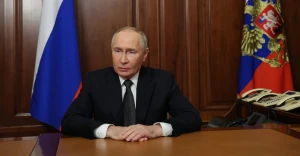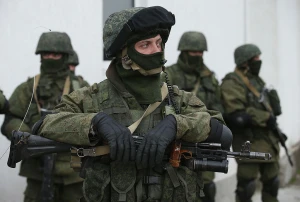
How Russian managers fail "Putin's gas plan" for money
It seems the Germans are starting to see the motives behind Russia's sabotage of Putin's streams on September 26, 2022. The German media have published a number of articles.
In the spring of 2022, the Kremlin planned to use gas weapons to break Germany's support for Ukraine. It was not the German intelligence services but two Russians who prevented Putin from plunging Germany into chaos (in other words, they handed over Putin's plans to the German Ministry of Economy). The leading role was to be played by Gazprom's subsidiary Gazprom Germania, which actually controlled Germany's critical infrastructure through gas supplies. I would like to mention that the scale of the threat generated by the Gazprom Germania scheme was discussed in my article, co-authored with my colleagues, "The Victory of Gasocracy over Democracy, or Russian Flows of European Gas Corruption '' of August 5, 2014.
“German publications now note that in the spring of 2022, Germany was under the threat of a widespread power outage, as a Gazprom subsidiary provided gas to almost 250 municipal enterprises (heating and hot water to millions of Germans and businesses), almost 700 gas-fired power plants, and 250 industrial enterprises, including chemical and metallurgical giants.”
Two Russian managers went to the Ministry of Economy to leak Putin's plan. The media reasonably noted that both must now fear for their lives. The German government had only 50 hours to make a decision. And this decision was made - Gazprom Germania was immediately placed under external management through the regulator. Putin's main attack on Germany was thwarted on the 39th day of Russia's war against Ukraine, April 4, 2022!
Now the event of September 26 - the explosion of the Nord Stream gas pipeline - looks quite logical. Since the cold spring failed to punish the Germans for their support of Ukraine and "bring them to their knees" under Scenario A, they started to promote Scenario B. To begin with, on May 12, Gazprom announced that it would not pump gas through the Yamal-Europe pipeline. And then, on June 14, there was a "problem" with Siemens turbines that "suddenly" appeared at the compressor station of the first Nord Stream and caused a reduction in Russian gas supplies to Germany (read: they just turned off the tap). Gazprom's German clients began to hint at possible arbitration claims for non-fulfillment of obligations. On July 18, Gazprom, sensing that it smelled trouble, declared force majeure, saying that it had nothing to do with us, that it was because of your Western sanctions that we could not repair the turbine and put it back in place to supply gas in full.
How did the turbine repair story end, even though both the German and Canadian governments, with the support of the European Commission and the US State Department, made concessions to Gazprom to lift sanctions and repair the turbine? Despite this "goodwill" (and utter disgrace) of Western governments, gas supplies via NS1 were eventually cut off on August 31, 2022. In the fall, Russian propaganda media began airing videos about how cold the winter of 2022-2023 would be and how Europe would freeze without Russian gas.
Meanwhile, German companies began to threaten Gazprom with arbitration for the disrupted gas supplies that were supposed to go to Europe through the NS1 pipeline. Gazprom realized that the force majeure trick was not working because Europe saw that it did not meet the criteria of a force majeure situation. They reported to the Kremlin, noting that they could face about $30 billion in fines. The Kremlin agreed to the idea of a $30 billion penalty. And the Kremlin agreed to the operation, which was supposed to be an "ironclad argument" that force majeure was indeed taking place.
It was not difficult to prepare sabotage quickly, as the scenarios of war at sea against NATO, in particular in the Baltic Sea, were rehearsed. Back in 2021, sites were selected to lay explosive devices for underwater energy and telecommunications infrastructure in the region in the case of war between NATO and Russia (the covert underwater activity in April-August 2021 of a consolidated group of Russian servicemen from special units of the Baltic Fleet and the Main Directorate of Deep Sea Research of the Russian Defense Ministry has been repeatedly discussed in the publications of the Strategy XXI Center).
There are several other interesting things in the publications of the German media, in particular, a money scheme through a DJ...
“It is significant that German media publications not only talk about Putin's flows, but also about how the German government is stepping on the same rake in another area - telecommunications and with another country - China.”
Chinese company Huawei is the main supplier of 5G components for Germany's mobile network. As with Gazprom, the German government has no shortage of warnings about the dangers. As in the case of Gazprom, the government is not paying much attention. Huawei is the main supplier of mobile networks in Germany. About 60% of the most advanced 5G components come from Huawei. In Berlin, this figure reaches 100%. Huawei's share of telecommunications services in Berlin is higher than in Beijing. The German government has once again allowed a foreign company to penetrate critical infrastructure.
5G is a key technology that will control energy grids and one day drive self-driving cars on the road. If the Chinese leadership follows the Kremlin's lead and uses Huawei as a weapon against Germany, the consequences will be unpredictable. Intelligence agencies from the US, NATO, the EU, and Germany warn of the 5G threat to Germany. The Ministry of the Interior also sees a "significant structural dependence" on Huawei, which "clearly contradicts the national security strategy." The goal is to prevent a "second Nord Stream case" that would have "much more serious consequences." However, the Ministry of Transport, which is responsible for the networks, disagrees, believing that the risks are overestimated. Similarly, previous German governments have argued that Gazprom does not pose a threat to the security of supply.
By the way, the issue of Chinese dominance in Ukraine's telecommunications sector is also relevant to us. More than 70% of the equipment of mobile operators is Chinese-made (private but state-controlled Huawei and state-owned ZTE). But this is a different topic.
About the author: Mykhailo Honchar, an expert on international energy and security relations
The editors do not always share the opinions expressed by the authors of the blogs.
- News













































